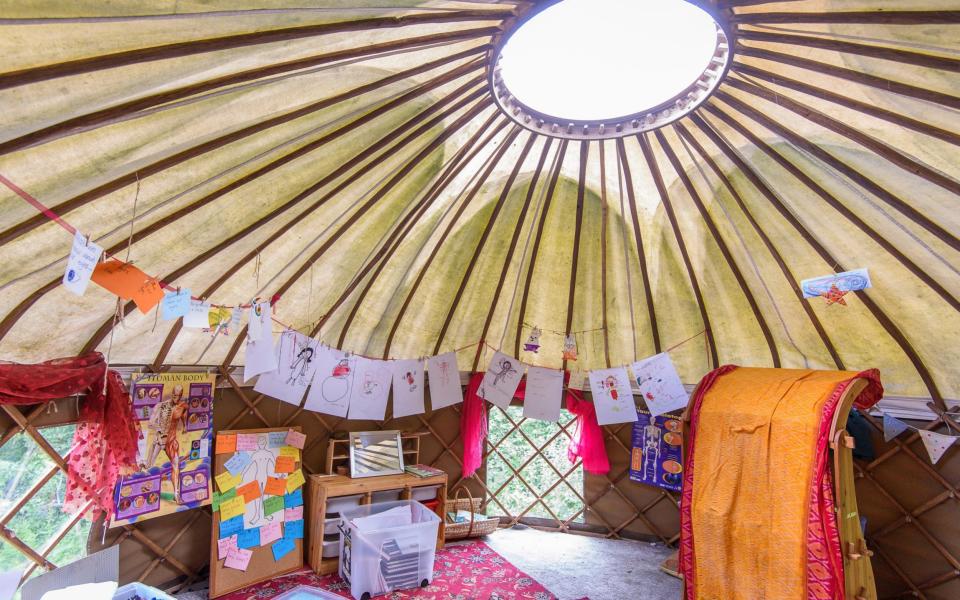'Pioneering' centre where children learn in a yurt may be 'illegal school'

A fee-paying “education project” where children learn in a Mongolian-inspired yurt is being examined by Ofsted over concerns it may be an “unregistered school”.
Formed in 2014, The Greenhouse Education Project claims to be an educational centre where students can “discover their passion in life” through climbing trees, roaming barefoot, and learning through “play and interaction”.
Charging fees of £1,250 per term, the project provides children with 18 hours of “enrichment” per week from qualified teachers known as “mentors”, who deliver a range of non-curricular activities including yoga, meditation and mindfulness.
Taught on blankets surrounded by wooden stoves, pupils begin each day with “circle time, a native American tradition” before giving a presentation about their “chosen passion”, which can range from “ballet, Hebrew traditions to snow leopards”.

However, concerns have since emerged about the centre, situated in South Stoke, Bath, after it was revealed that all four of its founding members have quit - with two now opting to send their children to regular schools.
The Telegraph also understands that Ofsted is now looking into whether it should formally investigate the establishment, which educates 23 children, on the grounds that it may breach guidelines concerning the provision of home education.
A spokeswoman said that "an illegal school" is a setting which is not registered as a school but "that provides the main part of education for five or more school aged children, or one or more pupils who are looked after”.
The watchdog said that whilst it was now looking into the school, it was unable to confirm whether a formal investigation would be launched.
However, it added that “18 hours per week” met the Department for Education’s definition of full-time education.

Anna Robinson, a director of The Green House Education Project, strongly denied that the centre fell within the definition of a school.
“It’s not a school,” she added. “In terms of Ofsted, even though we don’t qualify for being a school, all our policies, all our safety training has been deliberately done to Ofsted’s standards.
“Because we are all qualified home educators… it’s an unusual area - but absolutely not a school. There is full mainstream, or home education - what we provide is a hybrid. We are a new pioneering project, so it doesn’t fit easily under anybody’s categories.
“But we adhere to the standards, so it doesn’t worry me, because I don’t believe we are doing anything wrong.”

Ms Robinson added that she did not believe that the project’s three-day timetable constituted the “main part” of their students’ education.
While Ms Robinson and co-director Cindy Adams said they had been left “very disillusioned” with the mainstream schooling system, Melissa Kendall, one of the project’s original founders, said that she was now moving her son to a “traditional school” because he needed “more core skills” and days per week.
“I’m basically leaving the project,” she added. “We are not home educators. [My children] are leaving at the end of this term, and the reason is because we are exploring other alternatives in education.
“It’s certainly not a project for people who want a school. The other director put their daughter into a state school because they had other commitments. Three days a week just wasn’t for them.”
A spokeswoman for the Department for Education said that whilst it would not comment on individual cases it had provided Ofsted with “additional resources” to “root out” unregistered schools, and would take action and close those deemed to be operating illegally.

 Yahoo News
Yahoo News 
